Enlarge

By Todd Mills
Who doesn’t want a puppy for Christmas? A hunting companion for the next several years sounds really enticing to most hunters. But finding that right puppy is not only challenging, it’s also downright confusing.
The first Lab I ever owned cost me $50 and came as a referral from a friend who offered to help me train her. I had no idea what I was getting into, but I was certain that this was the dog for me. Call it dumb luck or my friend’s persistence in helping me train her, but Nikki was a great retriever and an even better companion. It might have helped that I killed a lot of birds over her, but either way, it taught me a lot about finding the right fit in gun dogs.
Bloodlines Matter but Aren’t a Deal Breaker
I can’t tell you how many times an eager hunter bragged about the bloodlines of the new puppy he was getting. Field trial champion, hunt test champion, HRC champion … you name it and I’ve heard it. But is that really important in choosing the right puppy for you? I think the answer is both yes and no.
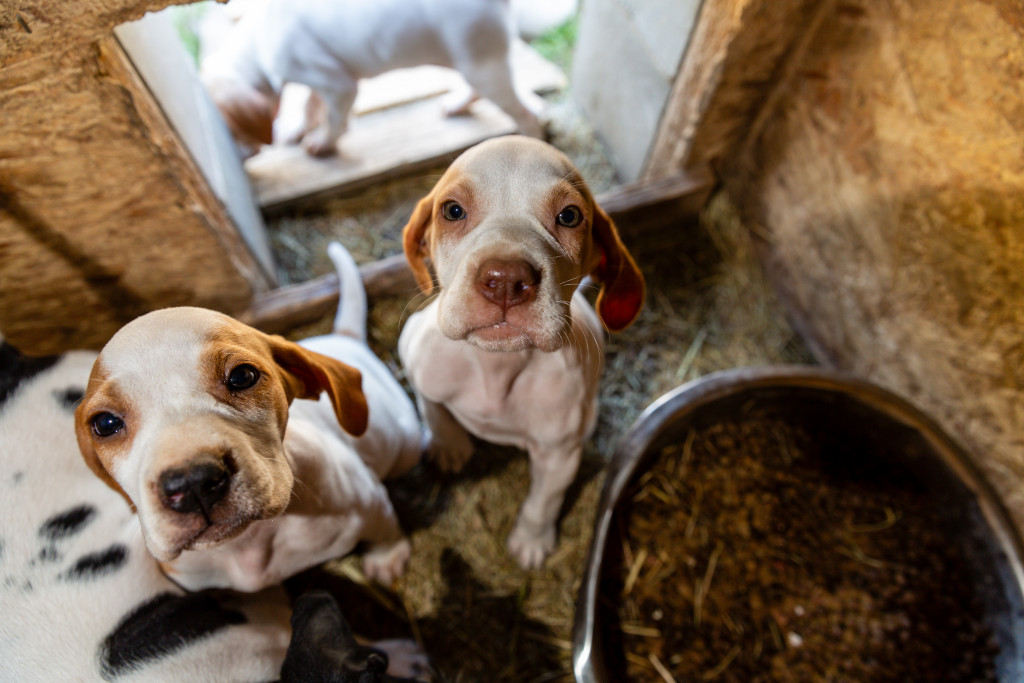
Jeff Kurrus, Nebraskaland
If you’re a first-time trainer, a high-powered bloodline can come with its training challenges. Often with a high-powered dog, you’re going to get a hard-charging dog, and that can be challenging to keep under control. If your goal is hunt test and field trial, then researching and finding a dog with that type of pedigree is important. If your goal is a well-finished gun dog, then finding a pup out of good hunting lines may suit your needs better. Either way, researching and talking with previous owners of pups out of the same bloodlines is beneficial before you settle on the litter.
Choosing the Right Pup Out of the Litter
Going to see the litter for the first time is an exciting adventure. Upon arrival, they may all look the same to you. But are they really the same? And how do you know which puppy to pick? By the time you go see them, they are already forming their personalities and hierarchy in the litter. Everything from birth is about establishing a place in the pack. From the runt to the big bully of the bunch, each will come with different challenges.
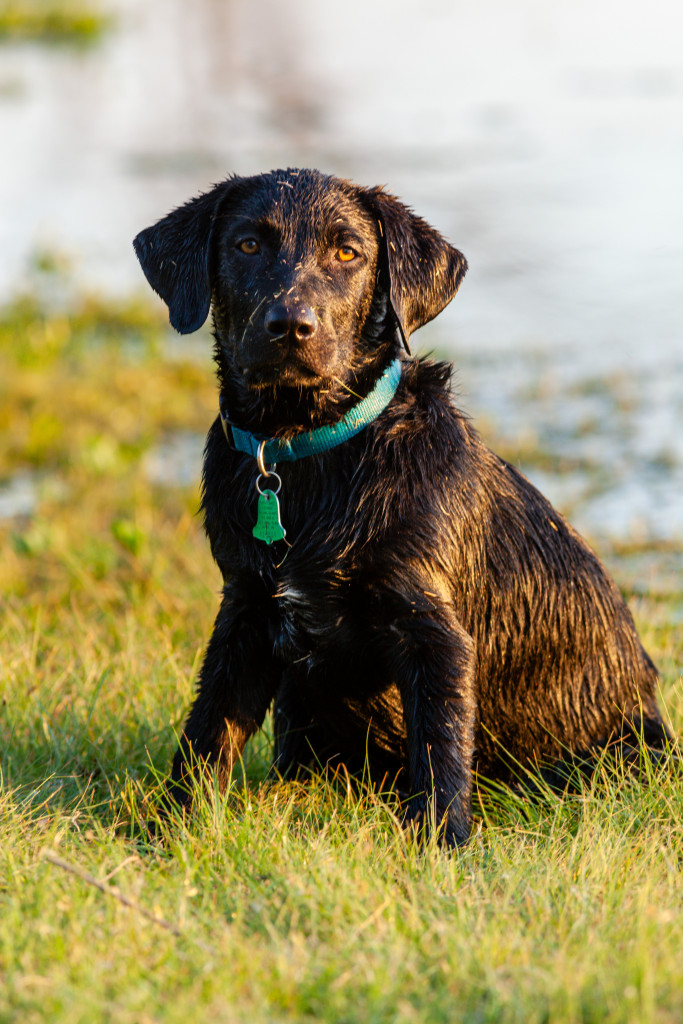
My second lab was the runt. In fact, when I went to pick up Allie, she disappeared from the litter and was nowhere to be found. She was out “hunting” since she had to fend for herself in the litter. Independent and a loner, Allie liked to do things her own way. She was easy to train, but I found it tough to get her to do things right. After a time, I understood that personality trait and adapted my training. With a dominant pup, you’ll get a headstrong dog who thinks she can bully over you. They are stubborn, but also tough as nails and willing to do anything to please you. Whichever pup you choose, realize that adapting your training to their personality is crucial.
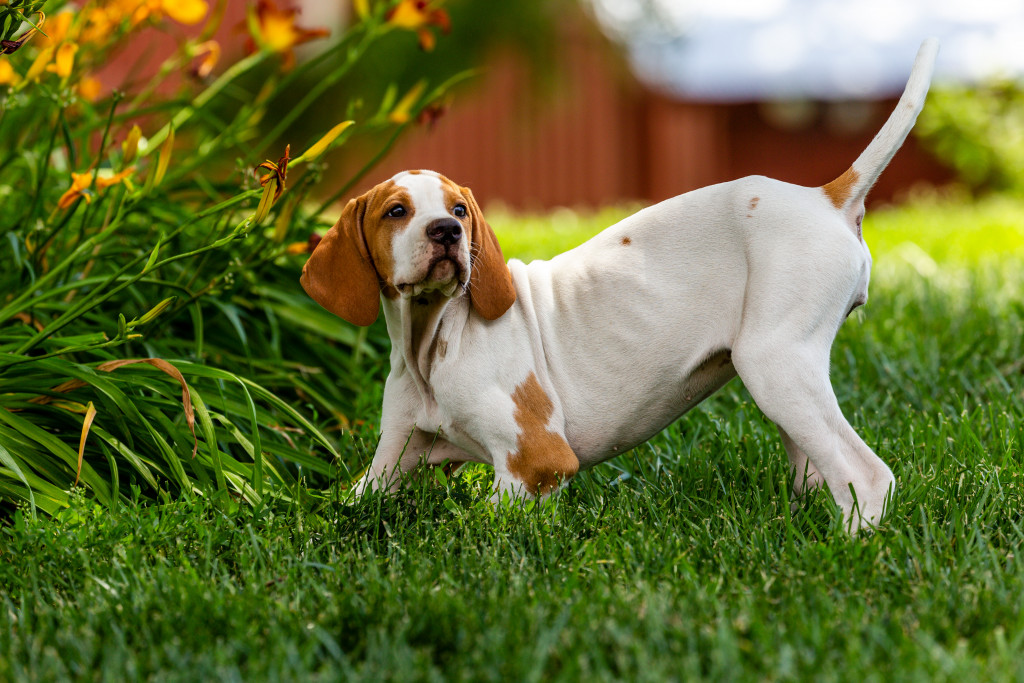
As you look over the litter, look at how the pups interact with each other. Try to find a personality trait you can relate to. Obviously looks are important, but so is taking the time to understand the pack and knowing which temperament will work best with you. The book The Art of Raising a Puppy by the Monks of New Skete is an excellent resource.
First Month Home
Bringing that pup home is an exciting time for both pup and owner. Exposing the pup to a new environment the right way can be critical to speeding up the training process later. Dogs generally thrive on routine, so establish one as soon as you get home. Allow them to explore as much as they can, while helping them to avoid accidents along the way.
Start getting your dog used to sleeping and resting in their kennel right away. The kennel will become their safe haven and a home when you are gone. During the first couple of days, puppies will object by whining and making a fuss, but don’t give in. Other than bathroom breaks, encourage them to use the kennel as much as possible. Make it comfortable and inviting, and after a few days, they’ll look forward to being inside it.
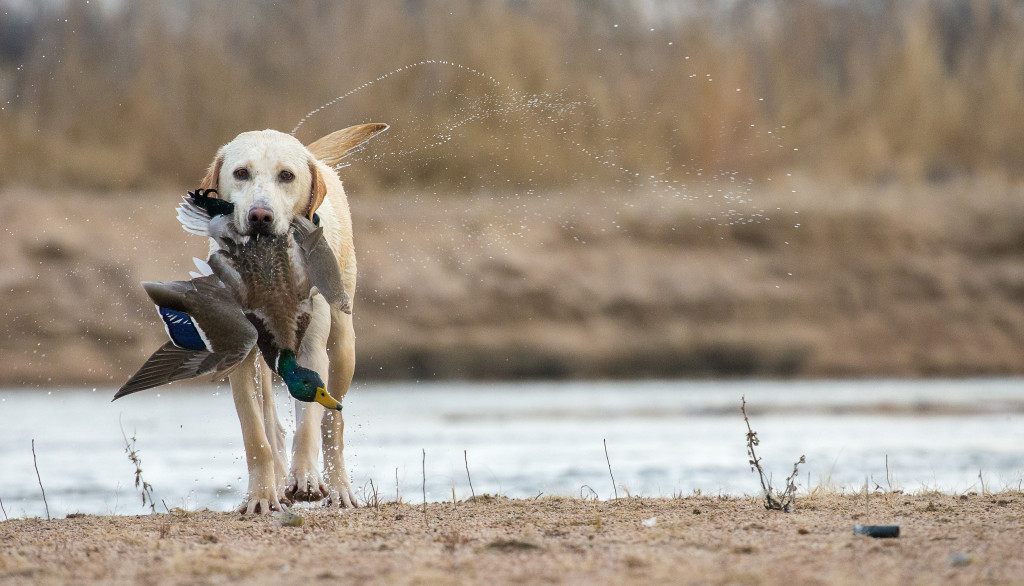
Puppies require exercise and rest, so make sure you take time to play with them at least three times a day as they adapt to their new home. Then spend time getting them out to socialize with other dogs and people. The more of this you can do, the better as they continue to adapt to their new surroundings.
Early Training Tips
Training a refined hunting dog can take up to three years or more, so patience is the key when starting your gun dog the right way. Establishing boundaries early with your pup is important as they explore and test the waters. Anxious to try and see what they have in their pup, novice trainers make the mistake of moving forward too quickly, skipping the essentials of a solid and steady gun dog.
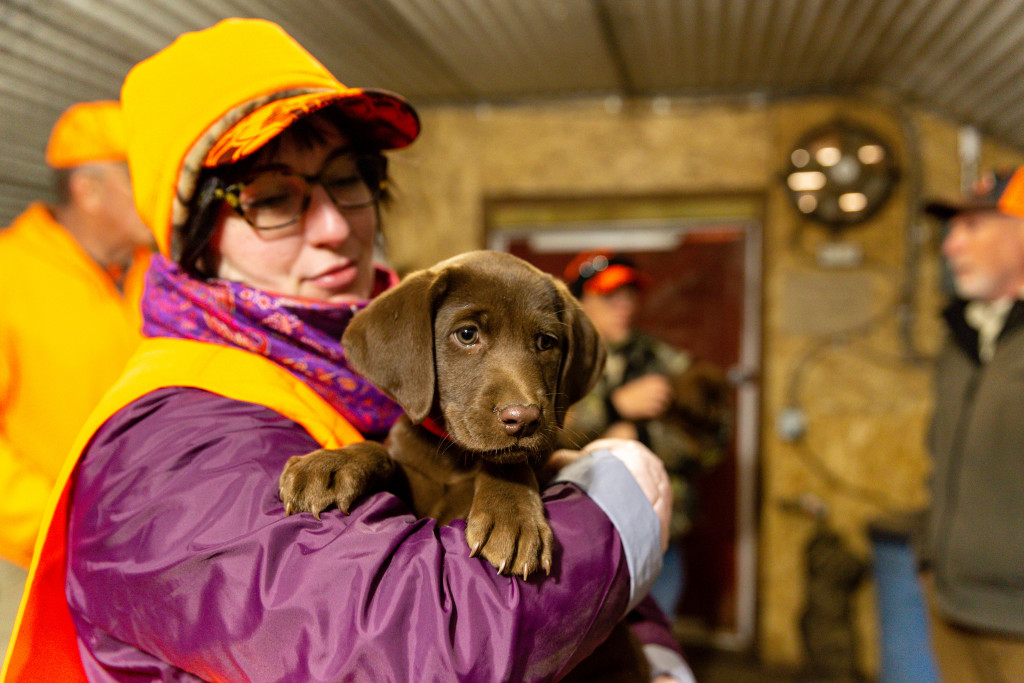
Initial training sessions should focus on the basic commands of no, sit, stay and come. Also, allow your young pup to drag a lead around with them so they become comfortable with its weight and pressure. A leash-broke dog allows you to restrain them when needed.
Attention spans are short in young dogs, so providing a positive learning environment while not overdoing it is important. Keep training sessions short and avoid creating boredom. When the pup begins to show signs of disinterest, start closing up the training session. Always end on a positive note with plenty of play time at the end.
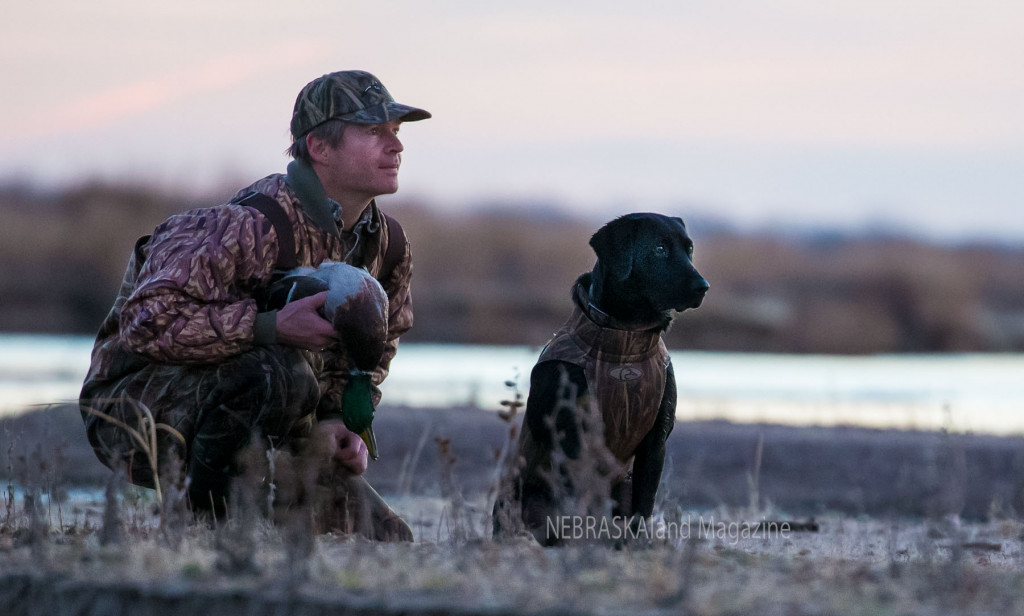
Also, puppies’ memories are short, so don’t stress if your dog has a bad session or doesn’t seem as interested on certain days. The only thing that can ruin a pup at that age is when a trainer consistently overdoes it, making sessions no longer fun for the dog and owner. First-time pup owners can get overzealous about showing off their pup; training young dogs too long and too hard can dull their drive.
The goal is having a hunting partner for years to come. ■
Field Training
• Nothing can replace live action. After your dog has completed solid obedience training, spend time with them in the field. Too many people love the idea of having a hunting dog, but they often spend very few days in the field with them and can’t understand why the dog isn’t doing what they want. If you’re going to invest in a gun dog, make sure you invest time into shooting birds over them.
• Your dog is going to screw up — a lot. Don’t feel embarrassed when this happens. I’ve seen new dog owners be afraid to hunt dogs with others because they don’t want to ruin a hunt. Be prepared for plenty of failure with your dog. These hunting scenarios provide valuable training opportunities for you down the line. One tip is to not carry a gun for the first year if you have other hunters with you. You can spend that time focusing on your pup.
• Let your dog hunt. Man, I get worn out with people who talk to their dogs all the time when we’re hunting, trying to do everything for them. Your pup needs time to learn on their own and use their nose and instincts to find birds. Enabling them will only create a dog that is solely dependent on you and that is cause for disaster in the long term.
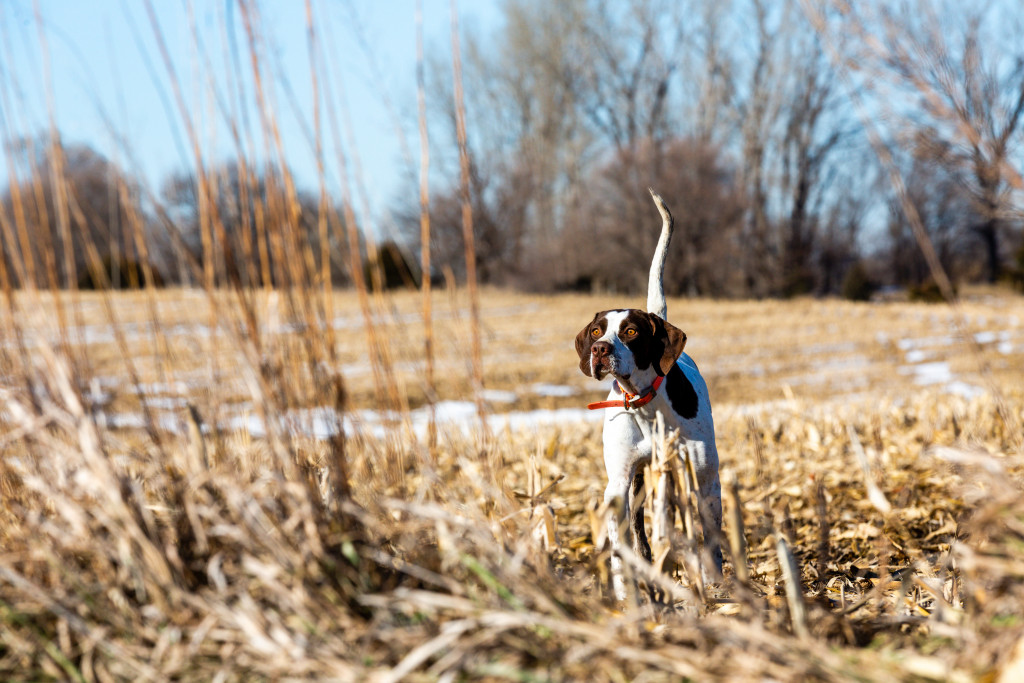
The post A Puppy for the Holidays appeared first on Nebraskaland Magazine.
















